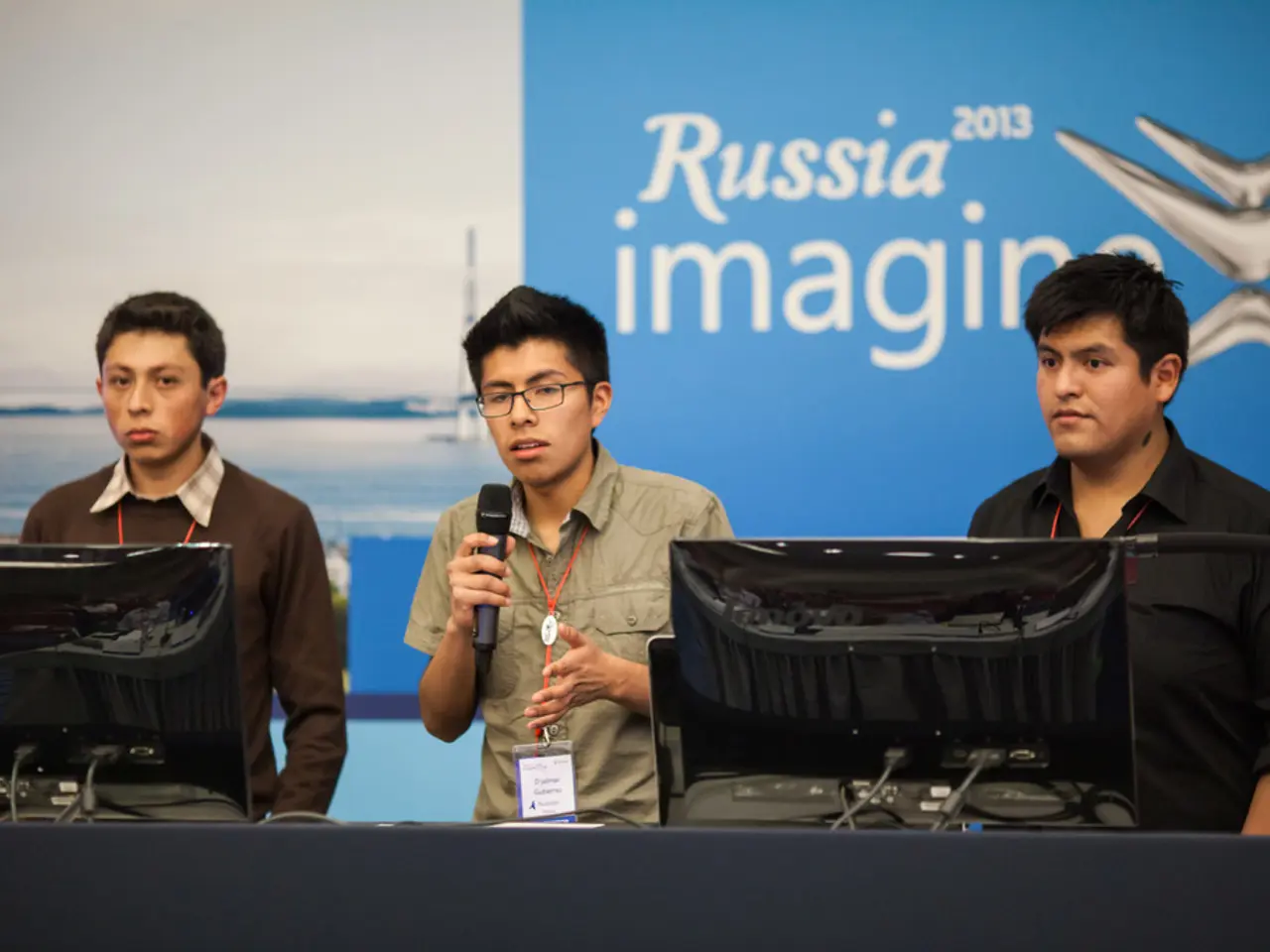Artificial Intelligence Processors: Prospects and Obstacles Facing Nvidia and Rivals in a Politically Charged Business Landscape
In the rapidly evolving world of artificial intelligence (AI), the semiconductor industry is grappling with a complex geopolitical landscape that is reshaping the AI chip market. Escalating global tensions have led to supply chain fragmentation, localization efforts, and cross-border technology restrictions, creating a challenging environment for major AI chip players like Nvidia, AMD, Broadcom, and Marvell.
One of the key issues facing the AI chip market is the supply chain fragmentation and localization efforts. Countries, such as China, are aggressively pursuing self-sufficiency in semiconductor production to reduce reliance on Western technology amid trade restrictions and political pressure. Chinese firms like Huawei and Baidu have made significant strides in domestic AI chip development. In response, the U.S. government has imposed export controls that limit sales of leading-edge AI chips to China to protect national security.
The U.S. CHIPS and Science Act, with $50 billion in subsidies, aims to secure semiconductor supply chains by promoting domestic manufacturing and reducing dependence on foreign suppliers, particularly from China and Taiwan. Similarly, the European Chips Act encourages collaboration among EU member states to improve Europe's semiconductor ecosystem and strategic independence.
In response to these geopolitical pressures, major AI chip companies are adopting several strategies. Nvidia, for instance, is navigating U.S. export restrictions through modified chip versions and diversifying supply chains. AMD is reorienting supply chains geographically, investing in R&D to maintain a technological edge, and cooperating with U.S. government initiatives to strengthen domestic production capabilities.
Broadcom is strengthening supply chain resilience and investing in fabs outside politically sensitive regions, while Marvell is emphasizing flexible manufacturing and diversified customer bases. All these companies are focusing on building geographically diverse, resilient supply chains, collaborating with governments, and accelerating innovation and vertical integration to maintain competitive advantages.
The AI chip market is also being influenced by innovations in chip architecture, such as neuromorphic and wafer-scale designs, which increase demand for AI chips. The market is projected to reach $154 billion by 2030, with the rise of custom silicon, like ASICs, expected to result in high annual growth.
However, the fragmentation of the market, export controls, and ethical concerns create serious challenges for AI chip makers. Companies must adapt quickly to changing conditions, balancing innovation with risks like export controls and supply chain issues. The future success of AI chip makers will depend on their ability to innovate and respond to a divided global market, focusing on energy efficiency and ethical use of their technology.
As the geopolitical landscape continues to evolve, the AI chip market is expected to navigate a complex and challenging environment. The race for self-sufficiency, innovation, and strategic independence is on, with China accelerating efforts to become self-reliant in semiconductor production, and companies like Nvidia, AMD, Broadcom, and Marvell adapting their strategies to stay ahead in this competitive landscape.
- The AI chip market, shaped by the intricate landscape of data-and-cloud-computing and politics, faces significant challenges due to supply chain fragmentation and localization efforts, driven by war-and-conflicts and policy-and-legislation.
- To combat these geopolitical pressures, technology companies like Nvidia, AMD, Broadcom, and Marvell are adopting various strategies, including diversifying supply chains, investing in R&D, and collaboration with governments to strengthen domestic production capabilities.
- In addition to geopolitical tensions, the AI chip market is also influenced by general-news, such as the rise of custom silicon and innovations in chip architecture, which have the potential to result in high annual growth, reaching $154 billion by 2030. However, ethical concerns, export controls, and market fragmentation create serious challenges for AI chip makers.








